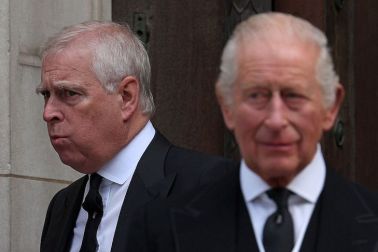
Nigel Farage is adept at riding the currents of British politics. When he named Reform after the Canadian party in 2020, it was a statement of intent. Like Preston Manning in the 1990s, he aimed to displace this country’s main centre-right party and refashion it in his image. But where Manning fell short, handing over the reins to Stephen Harper, Farage aims to go one better by becoming prime minister himself.
A keen angler, Farage has spent his few moments of downtime this summer fishing. On one such trip, he took an assembled group of journalists to the English Channel to highlight the small boat crossings. Amid rising discontent, with protests outside asylum seeker hotels, Farage has netted a tidy haul of Tory defectors, including the Welsh MS Laura Anne Jones and London councillor Laila Cunningham. More are expected shortly. As well as new faces joining Reform, there are old ones too. Jack Duffin, a longtime loyalist, is the party’s new director of campaigns.
In a fortnight’s time, Reform will head to Birmingham for its annual conference. ‘The next step’ is this year’s slogan. Aside from the usual pyrotechnics, the event aims to show how much the party has grown in the past year. Reform are trying to form their own quasi–shadow cabinet, with key figures focusing on specific areas. Andrea Jenkyns and Lee Anderson will speak on a broader mix of themes and topics than last year. The party’s long-awaited deportation strategy is expected to be unveiled next week.
The party is currently bolstering its policy team but will adopt an à la carte approach to ideas taken from elsewhere. The influential Prosperity Institute, formerly Legatum, has extensive cross-party contacts and is credited by Farage with ‘bringing fresh, young talent into current affairs’. The Cambridge academic James Orr, who helped to organise J.D. Vance’s Cotswolds trip, sits on its advisory board alongside Lord Ridley and recently attended a Reform press conference. What Orr calls the ‘politics of national preference’ fits well with Farage’s embrace of steel subsidies and water renationalisation.
A handful of newer thinktanks are well placed to flourish, too. Some are run by onetime Farage allies. There is Fix Britain, led by Matthew Patten, a former Brexit party MEP, and the Centre for Migration Control, set up by former aide Rob Bates. The Centre for a Better Britain launches next month under the direction of Jonathan Brown, the party’s previous COO.
At its annual conference, Reform aims to show how much the party has grown in the past year
With Reform boasting a ten-point average polling lead, senior aides believe it’s time for influential figures to start nailing their colours to the mast. ‘The revolution will be kind to those that came early,’ says one. ‘But the clock is ticking for people to make up their minds.’
Farage’s ‘Broken Britain’ thesis fits well with the shifting tides on the broader right. Leading Tories such as Robert Jenrick and Nick Timothy are among those discovering a renewed interest in the writings of Charles de Gaulle and Roger Scruton, who dwelt on the theme of institutions that become corrupted or infiltrated.
Conservative MPs increasingly express similar sentiments when they talk of the courts and the Church. ‘To save the village we have to burn it,’ says one MP of the post-Blair settlement. Kemi Badenoch has handed policy renewal to Neil O’Brien, a staunch critic of the ECHR. His journey from a sunnier form of Cameroon-style conservatism is seen by some colleagues as emblematic of many Tories’ direction of travel. Incrementalism is out; radicalism is in.
New groups which reflect the mounting public frustration at Britain’s direction have formed to offer fresh ways to channel these objections. Toby Young’s Free Speech Union has seen its membership jump from 14,000 to 32,000 in a year under Keir Starmer’s government. ‘Looking for Growth’, founded by Dr Lawrence Newport, is trying to create a cross-party consensus to foster pro-growth policies. It has 19 chapters, and that is set to double to 39. At one meeting in Bristol, an attendee told the room: ‘I am 25 years old. All I have ever known is decline.’ Such comments reflect a broader sense of pessimism among the young. Ipsos polling suggests that Gen Z seem to be starting from a lower base of trust in their peers and institutions than previous generations.

The government, meanwhile, is trying to ride out the storm. At the Design Museum last month, Pat McFadden, Chancellor of the Duchy of Lancaster, told digital innovators to ‘forget chainsaws and wrecking balls, that’s not what we are about’. He preferred to flag up ‘the turnaround of the passport service’ as a ‘great example’ of ‘when the state has done really well’. Rather than kicking down the barn, Labour believes it can build on what is already there by modernising Whitehall. Plans will be set out this autumn to expand existing civil service access schemes for those joining from working–class backgrounds.
In recent weeks, Labour has stepped up its attacks on Farage – a sign, Reform insiders say – of increasing desperation. Ministers have reportedly been authorised to accuse him of being on the side of sex offenders like Jimmy Savile in opposing the Online Safety Act, while backbenchers are encouraged to direct their fire at him in parliament.
Following an article in The Spectator last week about ‘Labour’s “dark arts” strategy’, lawyers for George Cottrell, a longtime unpaid adviser to Farage, have written to Morgan McSweeney, Starmer’s chief of staff, and the Labour party to demand an explanation. Cottrell believes he is the victim of ‘defamation at industrial scale’. After the article was published, a Substack dedicated to attacking Cottrell disappeared, along with its associated X account. A subject access request has been filed to Labour, requesting any data the party has on Cottrell. Downing Street sources categorically deny the existence of any new ‘attack team’ in No. 10 with the remit of challenging Reform.
The going is sure to get tougher for Reform but Farage is prepared. It was Jim Callaghan who said: ‘Perhaps once every 30 years, there is a sea change in politics. It then does not matter what you say or do. There is a shift in what the public wants and what it approves of.’
Much of the right is betting on such a sea change in 2029, with Farage – for now – most likely to be the captain at the helm.









Comments